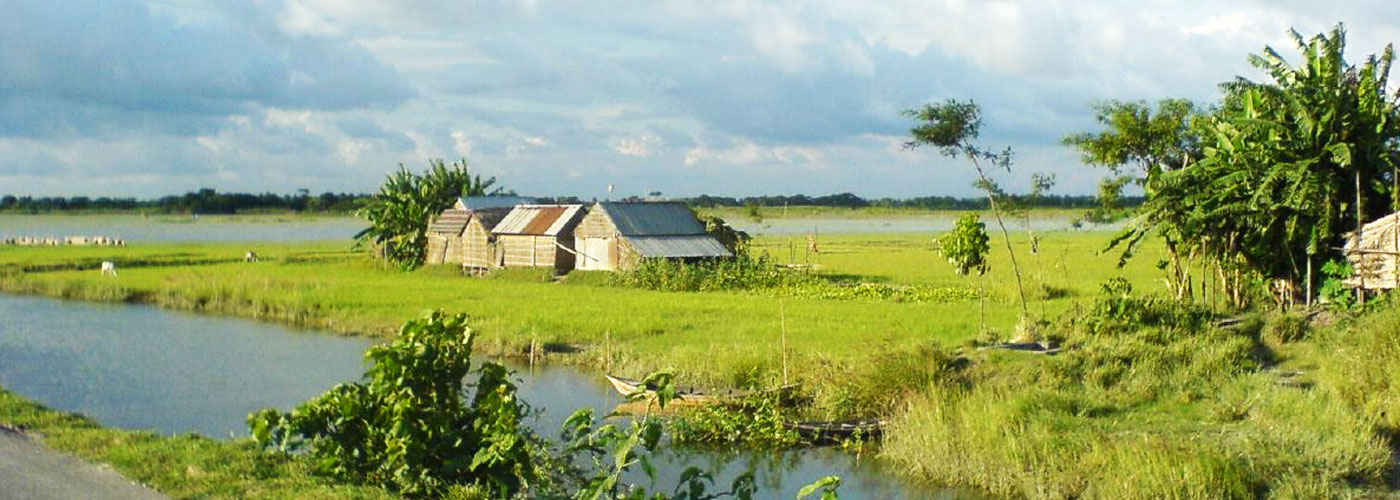People around the world risk their lives by trusting health care workers who sometimes are doing nothing more than shooting in the dark.
People around the world risk their lives by trusting health care workers who sometimes are doing nothing more than shooting in the dark. Tweet This Quote
Bangladesh is one of 57 countries in the world that faces a critical shortage of doctors, with a doctor to patient ratio of 1:2500. More than 70% of the population resides in areas devoid of infrastructure like hospitals, forgoing expensive trips to urban hubs. Instead, rural Bangladesh seeks treatment from untrained, ill-equipped local healthcare providers called “village doctors,” which poses life threatening risks.
mDoc, founded by Rubayat Khan and Ahmed Bakr, trains existing village doctors to use a tablet to consult with urban doctors, culminating in a printed prescription and the purchase of medication. By leveraging existing relationships in communities, mDoc increases the chances of the proverbial arrow hitting the apple without undermining or replacing the marksman. The patient benefits from ease of access and a more accurate diagnosis. mDoc’s staff provide tablets, printers, and medical devices like blood pressure cuffs and glucose meters as part of the initial package.
More than 70% of people in Bangladesh live in areas that lack hospitals. Tweet This Quote
“The village doctors make assumptions like if someone has fever then it’s automatically the flu,” says Khan. “While a useful heuristic for many cases, this can sometimes complicate the situation. There are instances where people die because of the wrong medication.”
In the United States antibiotics warrant a prescription, but in Bangladesh drug regulations are hardly enforced. A person typically walks into a pharmacy and can buy any medication over the counter based on word of mouth.
“Once, a pharmacist prescribed a school girl strong steroids to treat a skin condition,” explains Khan. “They favor prescribing strong drugs because it seems cure oriented and due to the higher cost is good for their business.” As a result, the child lost all her hair, became quite ill and dropped out of school temporarily. When she consulted with a trained doctor through mDoc’s telemedicine service, her course of treatment changed and she recovered.
Bangladesh is one of 57 countries in the world that faces a critical shortage of doctors. Tweet This Quote
“There are countless instances like that where it’s not necessarily fatal, but still life changing,” says Khan.
In addition to improving access to quality healthcare, the venture has even greater ambitions for the future. For example, mDoc is considering partnering with upcoming automated diagnostics and artificial medical intelligence engines, such as IBM Watson and Enlitic, to facilitate quicker diagnoses without relying fully on doctors. And with the massive boom in objective on-the-spot vitals measurement using simple tools like those from Scanadu, the data crunching could provide ever better and more accurate diagnoses.
“Imagine the pharmacists just record these data and feed into these systems, and the diagnosis and treatment options magically appears for the doctor to simply approve”, says Khan. “This would greatly reduce our costs of delivering quality care, and hence improve the model’s scalability.” As of now, patient medical histories are enrolled in mDoc’s database, along with their fingerprints. Since the record sits on the cloud, it can eventually be accessed from any established hospital.
In Bangladesh there are no drug regulations—a person typically walks into a pharmacy and selects a medication based on word of mouth. Tweet This Quote
“Our value proposition is that our service can bridge the knowledge gaps and help serve the community much better,” says Khan. “We divert more patients to the pharmacists, who choose to team up with us because they will provide better treatment and build their own brand in the community as the mobile doctor.”
This year mDoc will test out pricing models with pharmacists and marketing strategies in communities. They are looking to partner with pharmaceutical companies by 2017, which would help spread out costs. “It’s better for everyone to work together,” says Khan.
Khan draws from expertise he gained with his previous company, mPower, which has operated in 12 countries and develops health technology solutions for non-profits and governments. Based on a proposal that won at an MIT business competition in 2008, he began consulting in Cairo and Dhaka before realizing that wasn’t a big enough aim. He wanted to place services directly into the hands of healthcare workers in communities.
mDoc’s technology can sustainably bridge the distance between doctors and patients in Bangladesh and beyond. Tweet This Quote
“I wanted to solve the challenge of providing healthcare to millions of people,” says Khan. “I began obsessing over creating something that I could scale.”
Let’s hope he continues obsessing because over the first few months of the pilot alone, mDoc provided consultations to over 1,500 patients and expects to expand to 30 service delivery points my mid-2016.
“We believe our technology and business model can sustainably bridge the distance between doctors and patients in Bangladesh and beyond,” says Khan.



